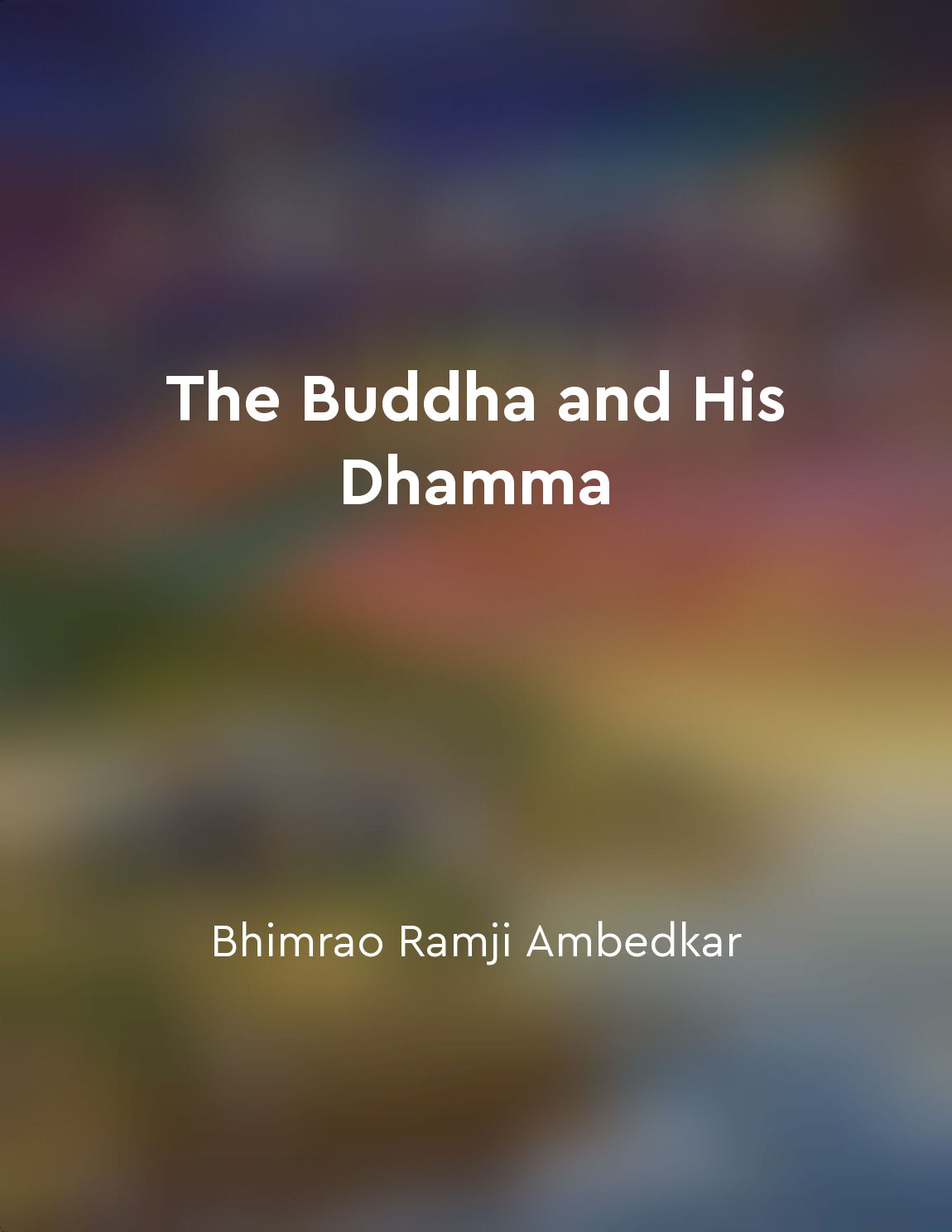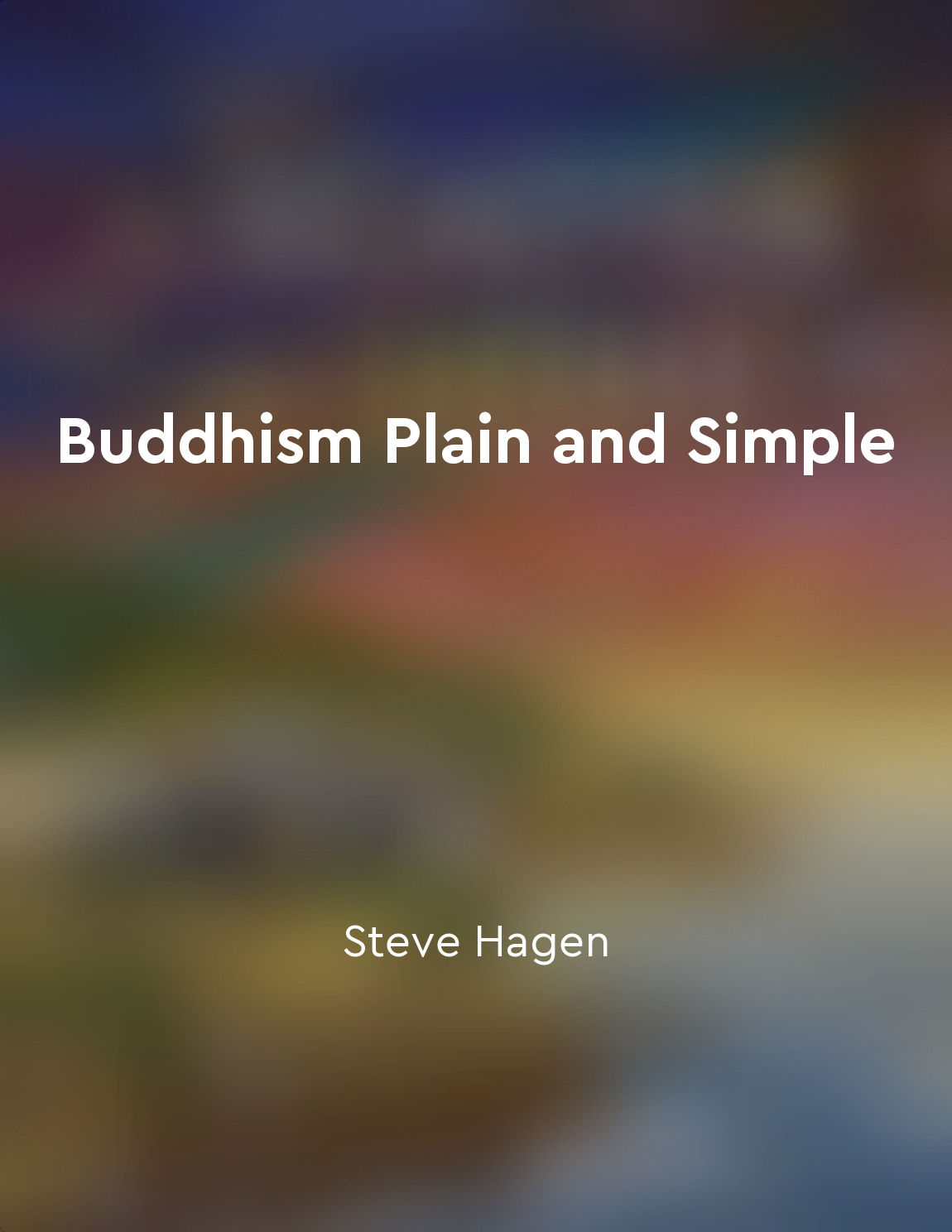The Five Precepts are ethical guidelines for Buddhist practitioners from "summary" of Buddhism For Dummies by Jonathan Landaw,Stephan Bodian,Gudrun Bühnemann
The Five Precepts serve as moral guidelines for those following the Buddhist path. These precepts are not strict commandments but rather voluntary commitments that practitioners undertake to live a life of ethical conduct. By observing these precepts, individuals aim to cultivate virtues such as compassion, generosity, and mindfulness in their daily lives. The first precept is to refrain from taking life, which includes not only avoiding killing humans but also all sentient beings. This precept reflects the Buddhist principle of non-harming and encourages practitioners to respect the sanctity of life in all its forms. By abstaining from causing harm to others, individuals can cultivate a sense of empathy and interconnectedness with all beings. The second precept is to refrain from taking what is not freely given, emphasizing the importance of honesty and integrity in one's interactions with others. This precept encourages practitioners to respect the property and boundaries of others, promoting a sense of trust and mutual respect within the community. By abstaining from stealing or exploiting others, individuals can foster a sense of contentment and gratitude for what they have. The third precept is to refrain from sexual misconduct, which involves avoiding harmful or exploitative behavior in one's relationships. This precept encourages practitioners to cultivate loving-kindness and respect in their interactions with others, promoting healthy and harmonious relationships based on mutual consent and care. By abstaining from harmful sexual behavior, individuals can develop a sense of self-control and emotional maturity. The fourth precept is to refrain from false speech, promoting honesty and truthfulness in communication. This precept encourages practitioners to speak with mindfulness and compassion, avoiding harmful speech such as lying, gossiping, or harsh words. By cultivating truthful and kind speech, individuals can foster trust and understanding in their relationships, promoting harmony and goodwill within the community. The fifth precept is to refrain from intoxicants that cloud the mind, emphasizing the importance of clarity and mindfulness in one's mental state. This precept encourages practitioners to avoid substances that dull the mind or lead to heedless behavior, promoting mental clarity and awareness in their daily lives. By abstaining from intoxicants, individuals can cultivate a sense of inner peace and presence, enabling them to make wise and ethical decisions in their actions.Similar Posts
Buddha's teachings are not based on beliefs but on experience
The teachings of Buddha are not about believing in something outside of yourself. They are not about following blindly some dog...
Gratitude attracts abundance
Gratitude brings your mind into closer harmony with the creative energies of the universe. The more thankful you are for the go...

Embracing impermanence is a cornerstone of Buddhist philosophy
Buddhist philosophy teaches us that everything in life is impermanent. This means that nothing lasts forever - not joy, not suf...

Detach from expectations to find true freedom
As we go about our lives, we are often burdened by our expectations. We have this idea of how things should be, how people shou...
Let go of the past and future to find peace in the present
In the teachings of Buddha, there is a profound insight into the nature of human suffering. The root cause of our inner turmoil...
The journey of selfdiscovery and spiritual growth is a lifelong process
Embarking on the path of self-discovery and spiritual growth is not a one-time event but rather a continuous journey that unfol...
